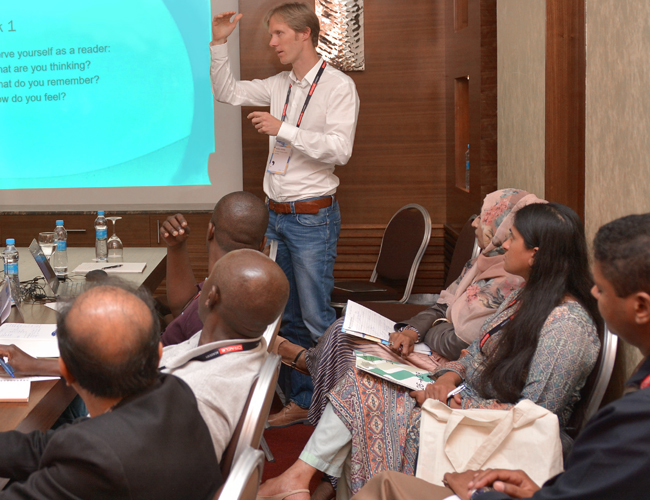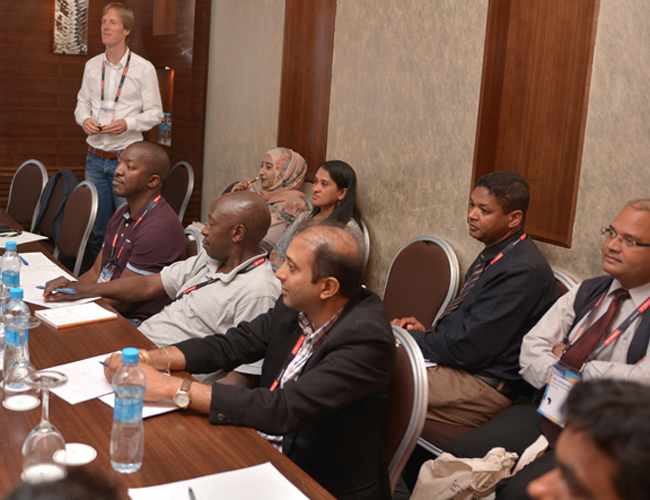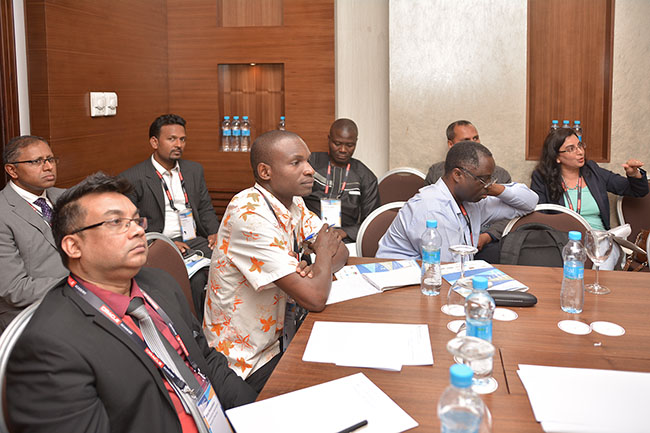A presentation workshop of a different kind in Mauritius
For several years, Strategy Compass have been supporting EAST, a non-profit organization dedicated to developing education, health and entrepreneurship in Africa. At the heart of its activities is the annual “eLearning Africa” conference. This event brings together people from all over Africa and beyond who can and want to bring about change. Although we’d previously only made donations, the organizers kindly invited us to actively participate in one of their conferences.
So, I went to Mauritius to hold a workshop with an exciting group of teachers, trainers, professors, ministry workers, business owners, and other dedicated participants who all wanted to know how to achieve even more impact with their presentations. Normally, our training courses are designed for managers, specialists or consultants from the business world. This meant I had to spend quite a bit of time preparing relevant content for this occasion.
The workshop was well worth it, both for the participants and for me. Here’s a brief list of what I learned from my preparation ahead of the event, and discussion with participants:
- Everyone is battling the same problems
The challenges we face when creating presentations in a business context are largely the same as those in an education context. And the situation in Africa is no different to Europe or the US. - Relevance is king
No matter who my presentation is for – unless my content and messages are of interest to my audience, and fit with their situation and environment, they’ll have no impact at all. - Messages are often hidden
It was proven to me once again: What you initially consider as your presentation’s key message is rarely what the message actually should be – when you think it all through properly. - Pyramids are great
Whether I’m substantiating a core message with arguments or logically breaking down learning objectives and content, Barbara Minto’s pyramid principle is extremely useful. While providing structure up front is also crucial in learning-based situations, summaries typically come at the end. - Design principles are universal
Anyone can design good slides using a few relatively simple principles. Perhaps not on their first attempt, but at least during the review cycle. And these same basic principles apply all over the world (at least in my experience).



Apart from the workshop itself, it was great to spend three whole days engaging in discussion with over 700 interested participants as to how learning and technology can change the lives of people in Africa. Thank you to the organizers for this fantastic conference!
Achim Sztuka